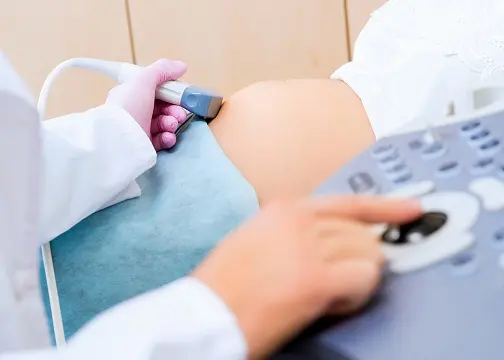During pregnancy, your gynaecologist will recommend that you take one or more pregnancy tests. This is to ensure that both you and your baby are in their best health. Certain pregnancy tests need to be taken by all women, whereas other pregnancy tests are only taken if they are recommended by your gynaecologist. Here are some of the most common tests taken to check for problems during pregnancy.
-
Blood test
A blood test is taken to ensure that you do not have certain conditions. These conditions include HIV and other sexually transmitted diseases (STDs), along with conditions such as anaemia, diabetes, reduced thyroid function etc.
-
Urinalysis
A urinalysis, as the name suggests, is performed to test your urine. This test is taken to make sure that you do not have sugar and protein in your urine as well as that your urine is infection-free. These tests are used to confirm certain conditions such as diabetes and preeclampsia (raised blood pressure in pregnant women).
READ: Pregnancy Blood Tests: What You Need to Know
-
Ultrasound
Ultrasound is a test in which sound waves are used to produce images of your internal organs and of your developing baby. This is another very common test, but it will be done up to 5 times during your pregnancy. It is done to get the expected date of delivery and later, in your second trimester, to check that your baby is growing normally. A specialized scan is also done as part of the first-trimester screening and maybe later to check for any abnormalities of growth and one may be done when you are at full term.
-
Pap smear test
A Pap smear test is a test in which cells are taken from the cervix of your vagina. The purpose of a Pap smear test is to see whether there is an abnormal growth of the cells of your cervix or vagina and if there is a possibility of it becoming cancerous. It becomes all the more crucial as cervical cancer can be cured if it is diagnosed early. You are recommended to take a Pap smear test at least once every three years after you are 21 years of age.
READ: First Trimester Tests During Pregnancy
-
First-trimester Screening
You will also have an ultrasound as part of the screening for Down Syndrome trisomy 13 and trisomy 18. It is recommended to have this test at week 12 but it can be done from week 11 to week 13 and 6 days. It is a highly specialized ultrasound and is combined with a blood test for 3 chemicals found in the blood of all pregnant women. It is important to remember that this is a screening test only and does not indicate for sure if your baby will have the condition. You should discuss with your doctor if you need to get the confirmation tests done.
-
Amniocentesis or chorionic villus sampling
When the result of the first-trimester screening is “screen positive”, the following options are available: Diagnostic testing by chorionic villus sampling (CVS) performed between 10-13 weeks, diagnostic testing by amniocentesis performed after 15 weeks, second-trimester maternal serum screening drawn after 15 weeks to obtain a combined first and second-trimester screening result and detailed anatomy ultrasound performed at approximately 18-20 weeks.
Now that you have some idea of the tests that will be performed when you’re pregnant, you must consult your gynaecologist regarding the same. This will help you to know which tests you need and when.

